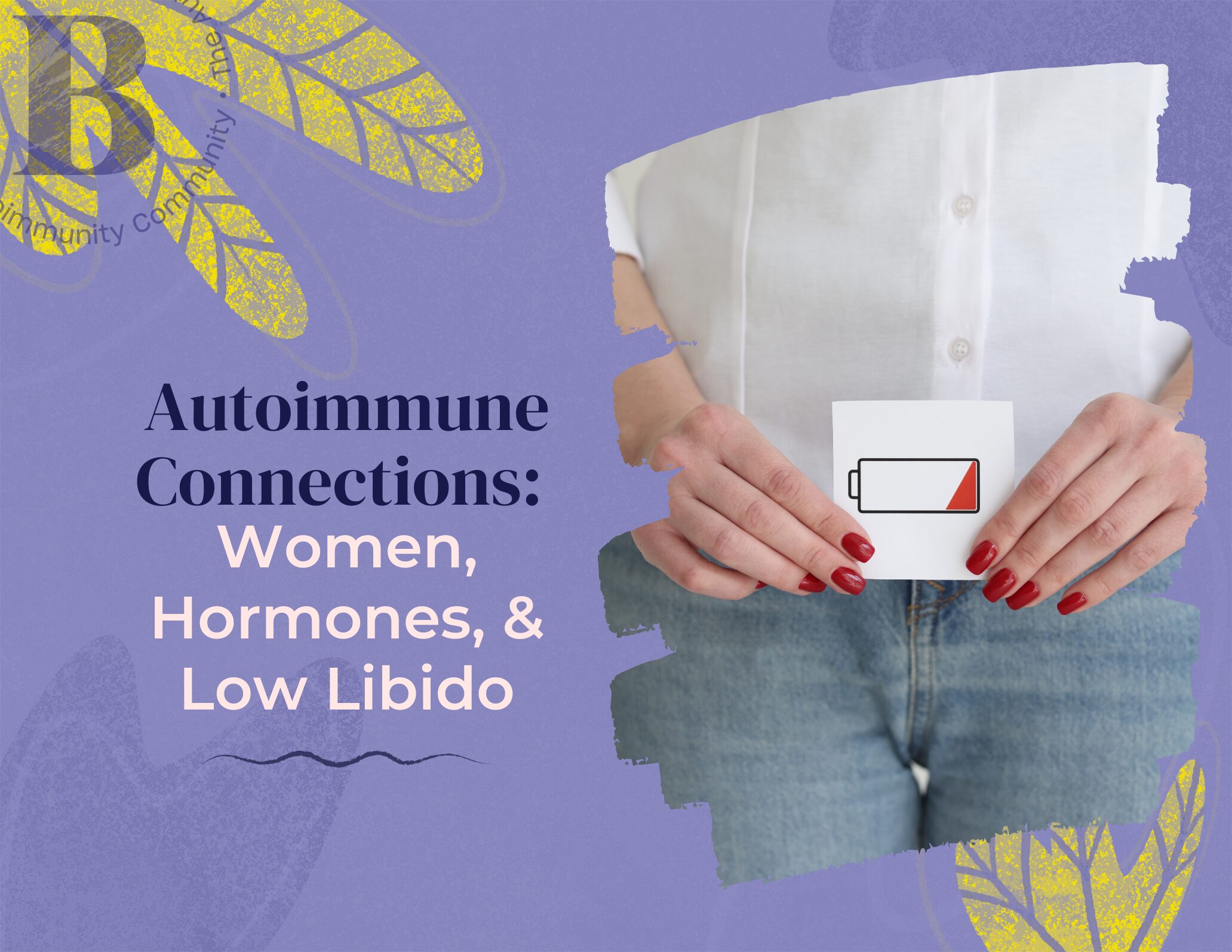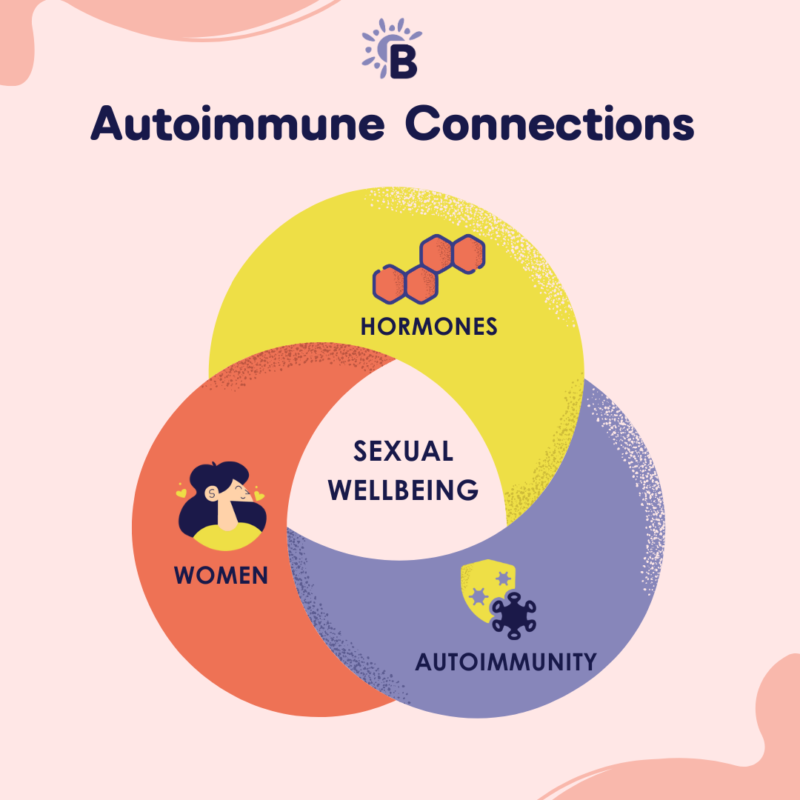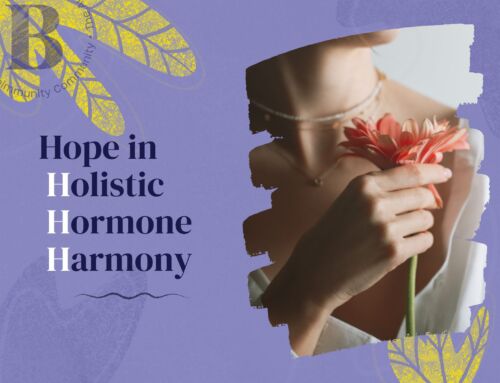
Autoimmune Connections: Women, Hormones, & Low Libido
Many women struggle with feeling exhausted and low libido, even when they want to rekindle that spark.
This common scenario often stems from hormonal imbalances.
To complicate matters, autoimmune conditions can further disrupt hormones, significantly impacting sexual drive.
Understanding these connections is key to finding ways to balance hormones and reignite desire.
Understanding Autoimmune Diseases in Women
Did you know that nearly 78% of people with autoimmune diseases are women?
Autoimmune conditions such as lupus, multiple sclerosis, rheumatoid arthritis, and Hashimoto’s thyroiditis are not only more common in women but also rank among the 10 leading causes of death for women under 65 in the U.S.
Autoimmune conditions don’t just cause physical discomfort and fatigue; they also bring hormonal changes that can significantly impact a woman’s libido.
By recognizing this initial connection, we can better address the unique health challenges women face.
The Role of Hormones among Women with Autoimmunity
To understand how hormones impact autoimmunity, let’s start with puberty. Here, fluctuating estrogen levels can trigger diseases like lupus and multiple sclerosis and significantly affect a young woman’s libido.
During pregnancy, dramatic hormonal changes can either improve or worsen autoimmune symptoms. These fluctuations often lead to shifts in sexual desire, increasing or decreasing libido.
In menopause, declining estrogen levels can sometimes reduce the severity of autoimmune conditions. However, this phase also brings its own challenges, as hormonal changes can decrease libido, affecting overall sexual health.
This second connection, between hormones and women, underscores how deeply intertwined our endocrine and immune systems are.
Hormonal changes throughout a woman’s life can significantly impact both her immune response and her sexual drive.
Hormonal Imbalances and Autoimmune Diseases
Ever wonder why some days you just don’t feel like yourself? Hormones might be the culprits, especially if you’re dealing with an autoimmune condition.
These tiny chemical messengers play a massive role in regulating everything from your mood to your energy levels and even your sex drive. When your hormones are out of balance, it can feel like your whole world is off center.
It’s not just in your head—your hormones could be working against you. This imbalance is often more pronounced in women with autoimmune conditions, where the immune system mistakenly attacks the body, adding another layer of complexity to hormonal health.
You might notice symptoms like unexpected weight changes, mood swings, irregular periods, or even skin issues.
These signs are your body’s way of signaling that something’s amiss. It’s frustrating and can sometimes feel overwhelming but understanding that hormones are a key piece of the puzzle is the first step towards regaining control.
- Estrogen, for instance, is a bit of a double-edged sword. While it plays a vital role in many bodily functions, it can also ramp up the inflammatory response and trigger autoimmunity, which can really mess with your libido.
- And it’s not just estrogen. Hormones like progesterone and testosterone are also key players. They help regulate your immune system and keep your sexual drive on track. When these are out of balance, it’s like trying to drive a car with a flat tire – not very smooth.
- Then there are the thyroid hormones. These little guys are essential for keeping your metabolism running smoothly and can influence both autoimmune disease risk and sexual health. If your thyroid is off, you might feel like you’re running on empty.
- Don’t forget cortisol, the stress hormone. When you’re constantly stressed, cortisol levels can go haywire, making autoimmune symptoms worse and knocking your sexual desire out of whack.
- And let’s not overlook vitamin D. This sunshine vitamin is known for its immune-boosting powers and plays a significant role in reducing autoimmune risk and supporting a healthy libido.
Finally, the connection between hormones and autoimmune diseases completes this triad, showing how intertwined our hormonal balance and immune health are with our sexual well-being.

What Can We Do?
While the connection between women, hormones, and autoimmunity cannot be denied and often impacts women’s sex drive, embracing holistic wellness offers a positive approach to balancing these hormones and improving overall health. Think of it like tuning a musical instrument: every string must be in harmony to play a beautiful melody.
- Good nutrition provides the body with essential nutrients to support hormone production and immune function.
- Diet changes, like reducing sugar and increasing healthy fats, as approved by your GP, can improve hormone levels.
- Stress management techniques, like deep breathing and meditation, can reduce cortisol levels and improve hormonal balance.
- Regular exercise boosts endorphins and helps regulate hormones.
- Quality sleep allows the body to repair and maintain hormonal balance.
- Mindfulness practices reduce stress and promote mental well-being.
- Yoga combines physical activity and relaxation, lowering stress and inflammation.
Holistic wellness empowers women to take control of their health and improve their sexual well-being. At BrightlyThrive™, we provide women with autoimmune conditions personalized support, educational resources, and expert guidance tailored to their unique needs. Our daily sessions on stress management, nutrition plans that promote hormone balance, and mindfulness practices to manage stress support all women’s sexual wellbeing. By connecting with other women who share similar experiences, our members find encouragement and practical solutions that make a real difference in their lives.
Final Thoughts
Balancing hormones is essential for maintaining a healthy libido, especially for women facing autoimmune diseases and hormonal imbalances.
Autoimmune diseases add another layer to this puzzle, significantly impacting sexual drive by disrupting hormones. Understanding these connections can help identify ways to balance them and reignite that lost desire.
Recognizing the link between autoimmune diseases and hormonal changes helps us address the unique health challenges women face. This knowledge opens the door to effective holistic strategies, aiming to improve both immune health and sexual well-being.
Get more resources and support on autoimmune health and your sexual wellbeing by becoming a BrightlyThrive™ member today. Our community offers personalized guidance, expert advice, and a nurturing network to help you navigate your health journey with confidence and care.
References
Low sex drive in women – Symptoms and causes – Mayo Clinic. (2024, March 7). Mayo Clinic. https://www.mayoclinic.org/diseases-conditions/low-sex-drive-in-women/symptoms-causes/syc-20374554
Phil, & Phil. (2024, June 26). Autoimmune Disease and Sexual Health Concerns: Navigating ED and Libido – Maggie Yu MD, IFMCP. Maggie Yu MD, IFMCP – Transform Your Health. https://drmaggieyu.com/blog/autoimmune-disease-and-sexual-health-concerns-navigating-ed-and-libido/
Fairweather, D., & Rose, N. R. (2004). Women and Autoimmune Diseases1. Emerging Infectious Diseases, 10(11), 2005–2011. https://doi.org/10.3201/eid1011.040367
Professional, C. C. M. (n.d.). Autoimmune Diseases. Cleveland Clinic. https://my.clevelandclinic.org/health/diseases/21624-autoimmune-diseases
Walsh, S. J., & Rau, L. M. (2000). Autoimmune diseases: a leading cause of death among young and middle-aged women in the United States. American Journal of Public Health, 90(9), 1463–1466. https://doi.org/10.2105/ajph.90.9.1463
Does Autoimmune Disease Affect Your Libido? What You Should Know. (n.d.). WellTheory. https://www.welltheory.com/resources/autoimmunity-and-libido
Desai, M. K., & Brinton, R. D. (2019). Autoimmune Disease in Women: Endocrine Transition and Risk Across the Lifespan. Frontiers in Endocrinology, 10. https://doi.org/10.3389/fendo.2019.00265
Hamilton, L. D., & Meston, C. M. (2013). Chronic Stress and Sexual Function in Women. the Journal of Sexual Medicine, 10(10), 2443–2454. https://doi.org/10.1111/jsm.12249
BodyLogicMD, & BodyLogicMD. (2021, May 18). Are Hormones Affecting Your Sex Drive? BodyLogicMD. https://www.bodylogicmd.com/faq/my-sex-drive-is-low-could-it-be-my-hormones/
TAGS:
CATEGORIES:





